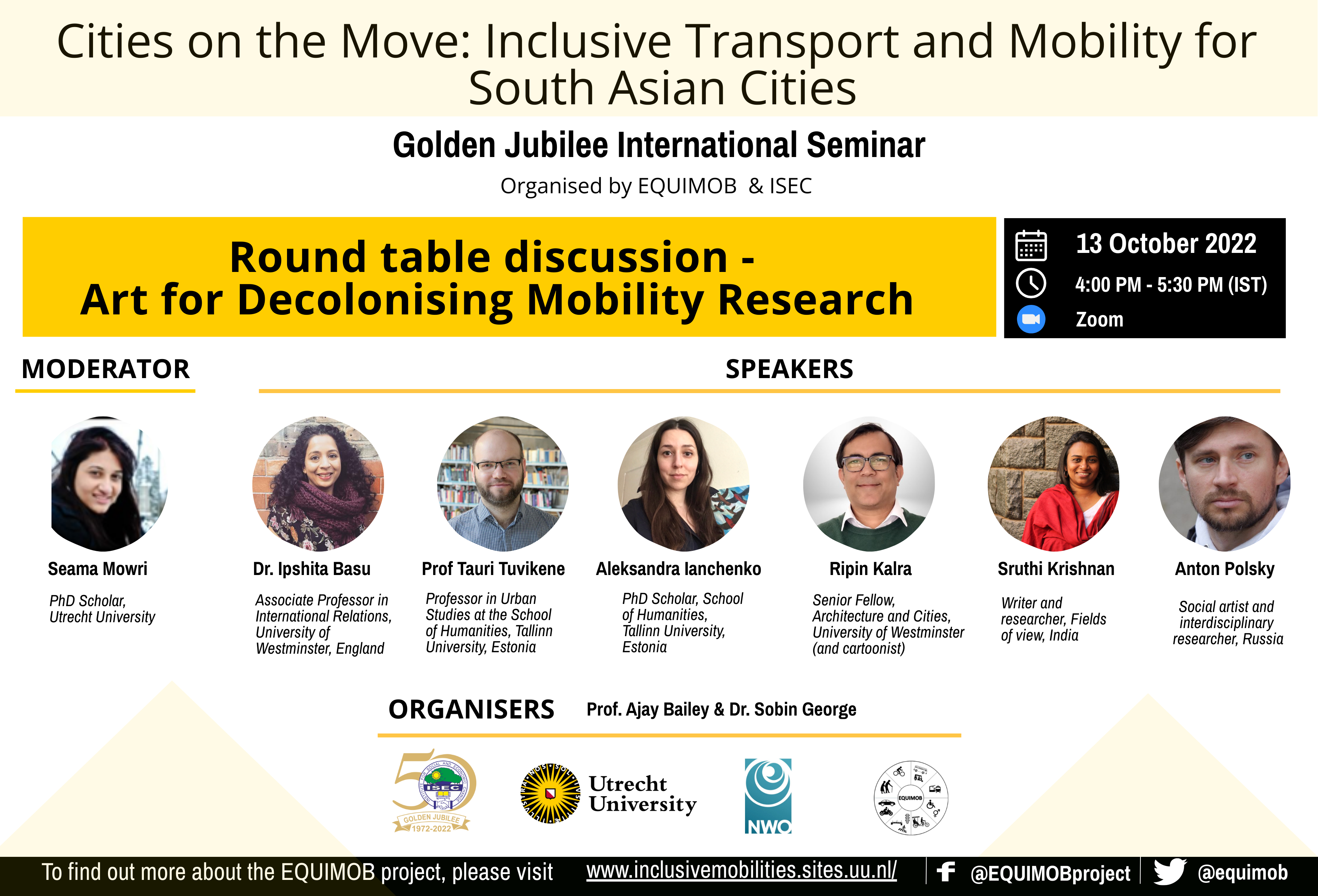News
Round Table Discussion on Art for Decolonising Mobility Research
EQUIMOB hosted an online roundtable discussion on ‘Arts for decolonizing mobility research’ on 13th October 2022. The aim of the round-table event was to stimulate discussions on how art-based methods can be used to examine expressions of lived experiences, and how decolonizing the gaze will help us see these imaginations, ideas and explorations of sensory experiences in mobility research.
The discussants of the roundtable were academics and artists from different disciplines practicing various genres of art: Dr. Ipshita Basu (University of Manchester) Ripin Kalra (University of Manchester), Sruthi Krishnan (Fields of View) and researchers from Putspace Project: Professor Dr. Tauri Tuvikene (Tallinn University), Aleksandra Ianchenko and Anton Polsky.
Using examples of art-based practices across India, Bangladesh and Estonia, the participants spoke about their experiences of challenging hierarchies, navigating conflicting interests in co-producing knowledge and striving for equitable partnerships. The discussion was framed around questions of representation, ownership, political and communal/caste tensions, decentering knowledge, and assuming vantage points that allow multiple interpretations to move away from a meta story.
To follow the discussion, please click here.

